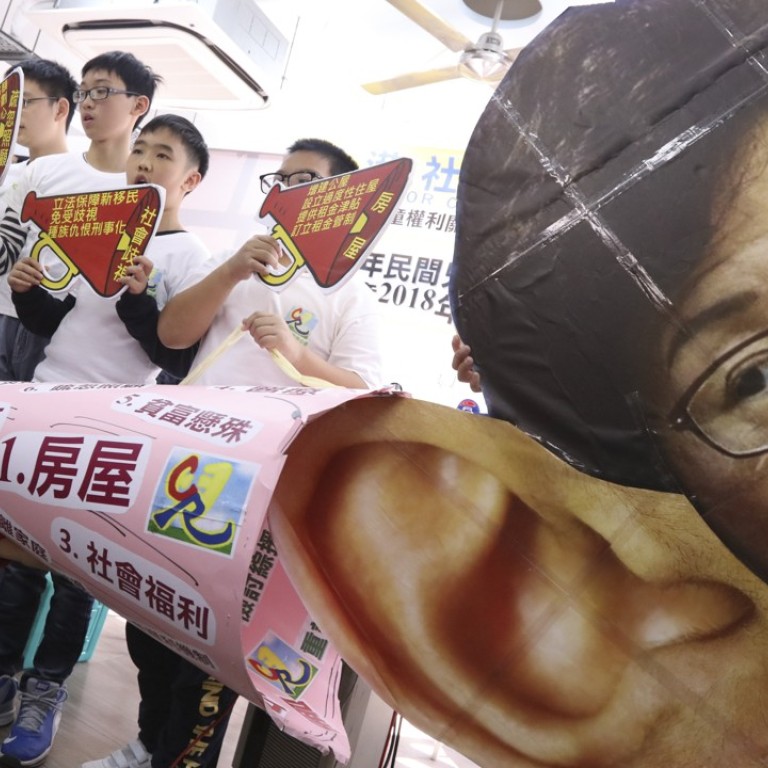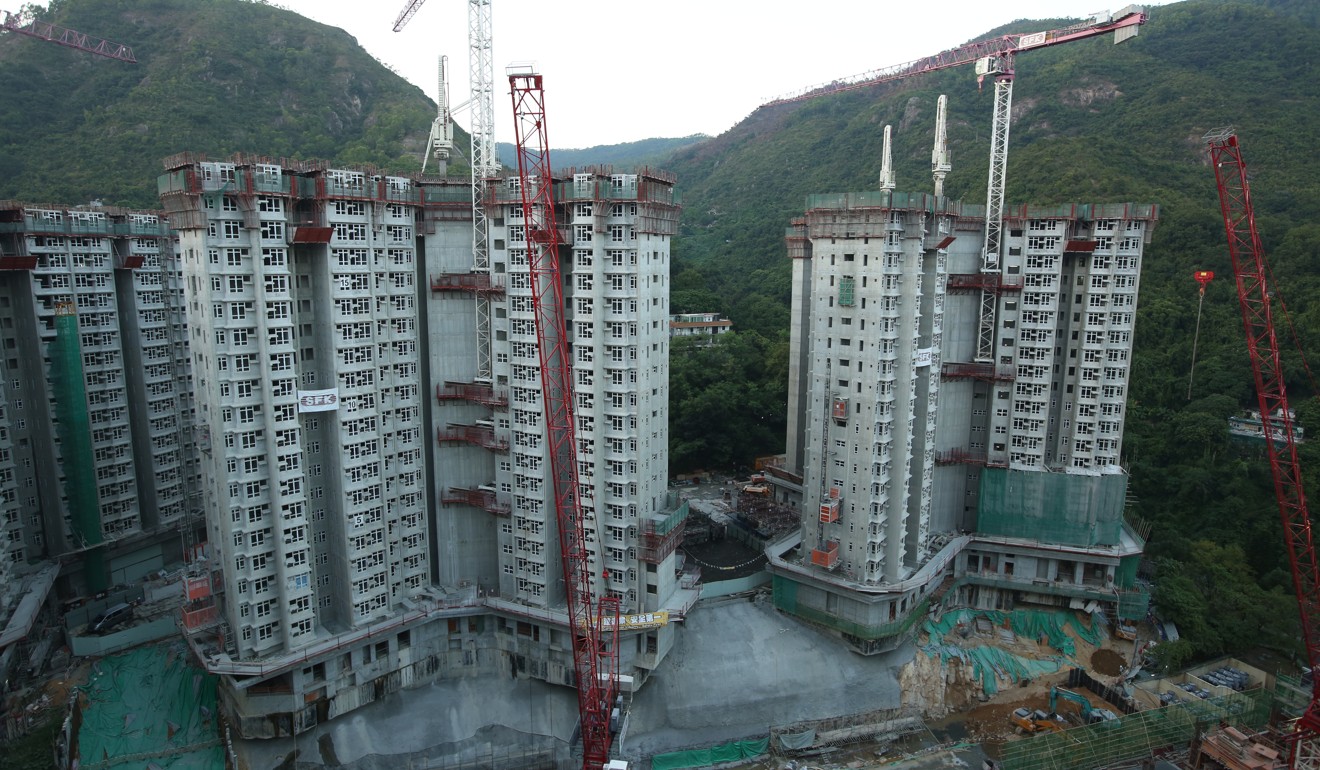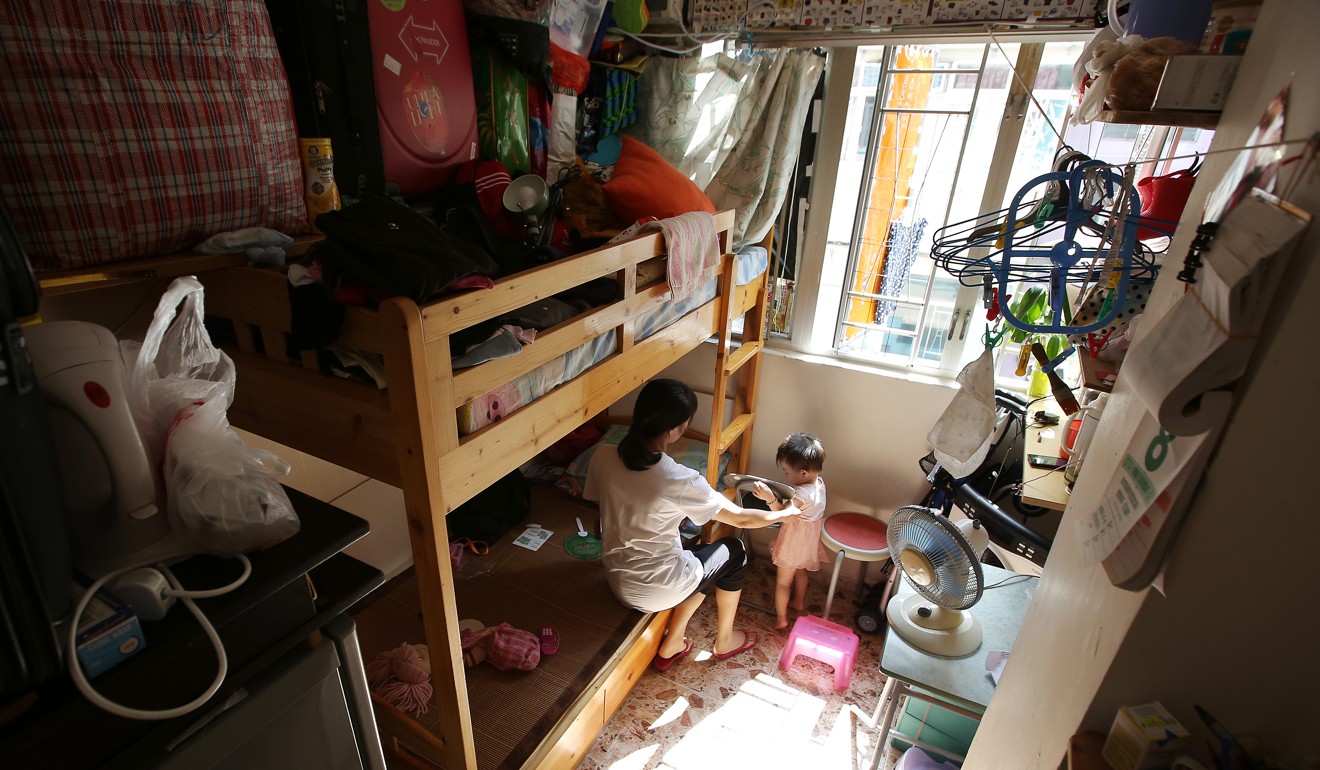
Child poverty alleviation work by Hong Kong government ‘consistently failed’ in 2017
Community group awards officials a score of 25 out of 100 and says more must be done to help the 229,000 youngsters living below the poverty line
Poverty alleviation work by the Hong Kong government to help the city’s underprivileged children has been a consistent failure in 2017, according to marks handed out by a community group.
But the Society for Community Organisation also said that housing problems among poor children had seen the biggest improvement among all the issues it studied.
The Annual Report of the Civil Children’s Ombudsman, released by the society and its Children’s Rights Association on New Year’s Eve, awarded city officials a score of 25 out of a possible 100 for their work addressing child poverty.

The score was an improvement on the 15 given in the same report for 2016, and was also the highest since 2006 when the first rating was issued.
More than 2,000 members of the Children’s Rights Association, aged from six to 17 and all from underprivileged families, were asked to rate the government’s performance.
How to break the cycle of child poverty in Hong Kong, where one in five children are poor
“The consistently failing level shows the government has not done enough concerning children’s rights,” association chairman Justin Wong Tsz-kit said. “We believe the government can do more.”
According to government figures cited by the report, of the roughly one million Hongkongers aged 18 or below, 229,000 were living below the poverty line, or 22.6 per cent.

Among the 10 factors assessed in the report, work on housing was awarded the highest mark, at 5 – an improvement on the zero score last year.
Each factor carried a maximum of 10 marks to comprise the overall possible top score of 100.
Wong said the good housing score was a result of government plans to offer transitional accommodation to people in the long queue for public housing, to get them out of substandard units until a government flat became available. But he said officials had not made good use of vacant land to build more public flats.
Hong Kong government not doing enough for residents living in dire poverty
Education was given 4 out of 10. Wong said a free kindergarten policy had been implemented in the current school year.
But three topics, including the city’s political system, child care services and arrangements for reunions for families divided between mainland China and Hong Kong, were given the lowest scores, of just 1.

The children surveyed were also asked to select the top 10 issues in need of attention in 2018. Similar to results in past years, the priorities were named as housing, education and social welfare.
The government is set to establish an official Commission on Children by the middle of the year. The city’s No 2 official, Chief Secretary Matthew Cheung Kin-chung, said in a blog post on Sunday that details of the commission’s work would be studied after collecting public opinion.
In wealthy Hong Kong, new children’s commission must address poverty
The association said it hoped the new commission would be able to handle the 10 issues it raised, with housing as the priority.
Wong Hung-to, a 10-year-old boy who lives in a 100 sq ft subdivided flat with his mother, said his tiny home could only accommodate a bed and a table.
“I don’t have any space at home to do my homework,” he said. “Usually I have to finish it at school or at the community centre.”

